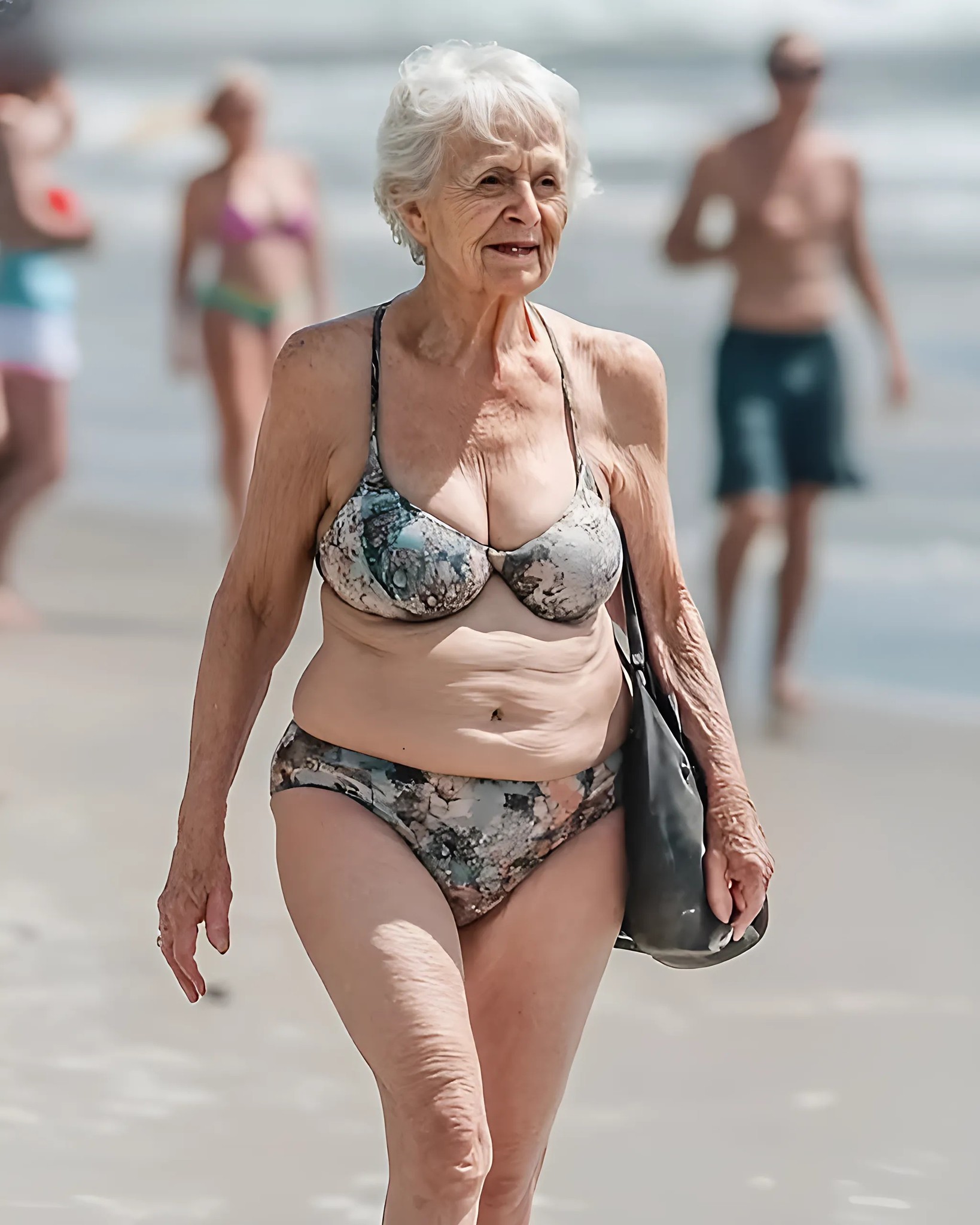Every summer, like clockwork, the media is abuzz with images of women on holiday, their every move being scrutinised. Does she wear a bikini? Is she too old, too big or too comfortable in her body? By now, unsolicited comments are being made, ‘Why is she wearing a bikini at this age?’ or ‘Shouldn’t she be wearing a one-piece swimming costume?’ Unfortunately, this ritual has become a feature of the season. From paparazzi to scathing headlines, this relentless shaming reinforces unrealistic standards. But why is this the norm, and what does it say about society’s relationship with women’s bodies?
The annual spectacle of body shaming
Let’s call it what it is: a spectacle. During the summer months, some media outlets seem to relish putting up images of famous women in swimming costumes. These aren’t just pictures, they’re weapons. Paparazzi catch women in vulnerable moments – when they’re adjusting a towel, stretching or bending over – and often take shots from disadvantageous angles to emphasise imperfections. If the perfect shot doesn’t exist, the right lens and a bit of editing can create the desired effect.
But why? Why do these images get so much attention and why is there such a public interest in seeing women, especially those who dare to age or weigh more than a size eight, judged for simply living their lives?
Why women’s swimming costume choices are everyone’s business
Women’s bodies have long been considered public domain. When a famous woman steps out in a bikini, her body is scrutinised in front of the world. It’s not about fashion, it’s about the message. There is a persistent expectation that women should conform to a certain body type and age with grace – if they age at all. Deviating from these unspoken rules means opening yourself up to ridicule and criticism.
The pressure to ‘be bikini ready’ is on
Every summer we hear about achieving that elusive ‘bikini figure’. The message is clear: only certain bodies are worthy of wearing a bikini, and if your body doesn’t meet that standard, you should hide. This obsession with the ‘bikini figure’ has led to an entire industry of trendy diets, intense workouts, and health products designed exclusively for women. The bottom line is that women must constantly work out to meet society’s physical standards or they may be deemed ‘unworthy’ to participate in the summer fun.
Age and double standards regarding bikinis
While the annual batch of pics sometimes includes men, the focus tends to be on women. Aging male celebrities in swim trunks are rarely the subject of such wrath. Male celebrities can go grey, gain weight or show signs of ageing and it is usually accepted as the norm, even a cause for celebration. But if a woman dares to age, especially in a bikini, the narrative changes. The British media has a strange way of showing these women under a mask of admiration, while subtly (or not so subtly) encouraging readers to mock.
The role of the paparazzi: turning innocent moments into public humiliation
The role of the paparazzi in this bizarre ritual cannot be underestimated. Their long lenses are not looking for glamour; they are looking for the ordinary moments that make these celebrities human, catching them simply in the act of being. This creates a spectacle that people feel the need to respond to, which generates discussion on social media, tabloids and beyond.
Photographing women in vulnerable moments
These photos are purposely created to be disadvantageous. A woman bending over to apply sunscreen or sitting without considering her posture becomes an object of ridicule. Society has turned beach activities into an opportunity for humiliation, as if a woman on holiday has somehow invited the world’s criticism by simply not being ‘camera ready’.
Public humiliation as entertainment
The disturbing aspect of this annual spectacle of shame is that it seems to entertain people. There is an undercurrent of cruelty that society has become accustomed to. This cycle of ‘shock, shame and sharing’ has made it acceptable to treat women’s bodies as entertainment material, mercilessly judging them and ignoring the consequences for the real people involved in these situations.
The psychological impact of body shaming
Research has shown that exposure to body shaming messages can have a significant impact on mental health, lowering self-esteem and causing dissatisfaction with one’s body. This doesn’t just affect celebrities, but all women. When the media sets the standard that only a narrow range of bodies can confidently wear a bikini, it reinforces a damaging message. Many women internalise these unrealistic expectations, leading to feelings of inferiority and self-consciousness, even in private situations.
The history of body control in the media
Body shaming is not a new phenomenon, but its evolution has become more sophisticated. From tabloid culture to today’s viral social media posts, the idea that a woman must look a certain way to earn respect remains disturbingly relevant. In decades past, the culprits were magazines using retouching and photoshop to present an unattainable ideal. Today, it’s ‘accidental’ beach shots that convey the same painful messages. We’ve traded one form of unrealistic beauty for another, and traditional media and social platforms serve as the hunters of these stereotypes.
Taking back the bikini: women’s right to be themselves
The backlash against these harmful narratives is growing as more women reject the idea that they should hide their bodies. Movements towards bodypositivity and inclusivity are helping to change perceptions. Women are beginning to accept their bodies, regardless of size or age, and take their place on the beach without apology.

A call for a more inclusive media culture
For this to change on a larger scale, our perception and discussion of bodies needs to change. The media and paparazzi need to take responsibility for spreading harmful stereotypes. Instead of focusing on body shaming, we could focus on stories that inspire and celebrate diversity. The narrative shouldn’t be about how someone looks in a bikini, but about the memories they create, the pleasure they have and how they live their lives.
Conclusion: It’s time to ruin the season of shame
The annual summer spectacle of body shaming isn’t just tabloid fashion; it’s a reflection of a society that continues to impose strict expectations on women’s bodies. The irony is that women on holiday are often the closest to us. They’re not on the red carpet; they’re enjoying a moment of relaxation like everyone else. It’s time to let them be. Instead of stoking the fires of public judgement, we need to recognise that beauty is diverse, age doesn’t matter, and every body is worthy of celebration. So this summer, let’s change the narrative: every woman deserves the right to wear what she likes and enjoy the sunshine, free from judgemental stares.

